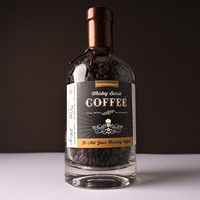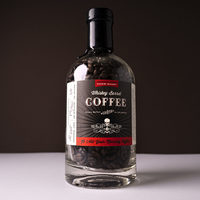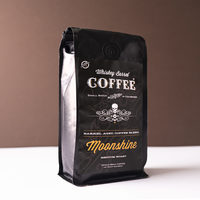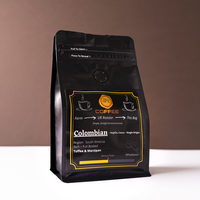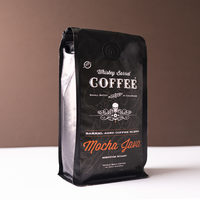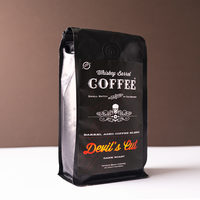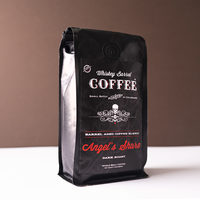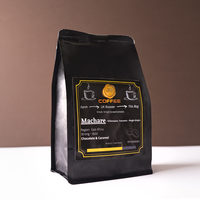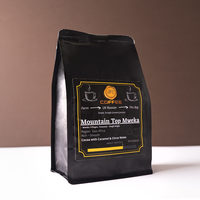Description
Key Flavour Notes
What grind size do I need?
How to store
The Gayo Highlands region is a high plateau in the Central Aceh province of northern Sumatra home to the Permata Gayo Cooperative which was founded in 2006. Fifty farmers from 5 villages of the Bener Meriah district of Aceh Province organised there build of their abandoned coffee farms after a civil war dominated the region. Successfully increasing their membership, they achieved organic certification in 2007and a Fairtrade certification in 2009. The cooperative consists of 2,053 members with an average size of 2.5 hectares per farm. Farmers deliver the “Gabah”, a wet parchment coffee with a moisture content of approximately 45%; the Gabah is then dried for a day prior to hulling. After the hulling process the “Labu”, a wet green bean at 30% moisture, takes a further two days to become “Assalan”, down to 20%. The Assalan is transported to the main dry mill where it is dried for a further half a day to 13% as unsorted green beans which are then ready for exporting. Young professionals manage the processing from cherry to export with fifty percent of the coffee being fully washed, and the remainder honey processed as well as traditional wet hulled methods. The islands are volcanic which lends itself to the soil containing extra minerals that generate interesting flavours. Most unroasted coffee beans are green but due to the soil, these beans are blue, attributed to the low iron content in the soil. Sumatra covers a distinct range of flavours, it tends to have an earthy taste in the back of the mouth, some would describe it to taste like herbs. It has the lowest acidity of any other coffee but is combined with a rather rich, thick body. There are also hints of vanilla, cocoa and cedar within the cup – these tend to really pop out in a different way.
Location: Sumatra, Permata Gayo – Indonesia Altitude: 1100 – 1600
Species: Arabica
Process: Wet Hulling
Taste Notes: Blackcurrant, Jam-like, Hint of Chocolate
Wholebean
Best For: Grinding at home
Very Coarse
Best For: Cold-Brew, Cowboy-Coffee
Coarse
Best For: French press/cafetière, percolators
Medium
Best For: Chemex, drip coffee makers, siphon brewers.
Medium-Fine
Best For: cone-shaped pour-overs, Moka Pot, vacuum brewers, AeroPress
Fine
Best For: Espresso machine, Moka pot
Very-Fine
Best For: Turkish.
Storing roasted coffee beans properly is important to maintain their freshness and flavour. Here are some tips on how to store roasted coffee beans:
-
Keep them in an airtight container: Exposure to air is one of the biggest enemies of coffee beans, as it can cause them to go stale quickly. Store your roasted coffee beans in an airtight container to prevent air from getting in.
-
Store in a cool, dry place: Roasted coffee beans are best stored in a cool, dry place away from direct sunlight, moisture, and heat. The ideal storage temperature for roasted coffee beans is between 50-70°F (10-21°C).
-
Avoid storing in the fridge or freezer: While some people may suggest storing coffee beans in the fridge or freezer to prolong their freshness, this is not recommended. The moisture and temperature fluctuations in the fridge or freezer can actually damage the coffee beans and affect their flavour.
-
Use the beans within 6 months: Roasted coffee beans are best consumed within 2-4 weeks of roasting for optimal flavour, as their flavour and freshness can deteriorate over time. It's best to buy smaller quantities of coffee beans depending on your consumption rate and use them within this timeframe to ensure the best quality and taste.
By following these tips, you can help preserve the freshness and flavour of your roasted coffee beans and enjoy a delicious cup of coffee every time.
if they are not stored properly. When coffee beans are exposed to air, moisture, heat, or light, they can lose their flavour and freshness and become stale. Stale coffee beans can taste flat, sour, or bitter and may not produce the same rich aroma and flavour that fresh coffee beans do.
In summary, while coffee beans do not necessarily "go bad" in the way that some foods do, they can certainly lose their quality over time, affecting the taste and freshness of your coffee.



